The Psychology of Light Yagami: What Drives a Protagonist Turned Villain?

1 year ago
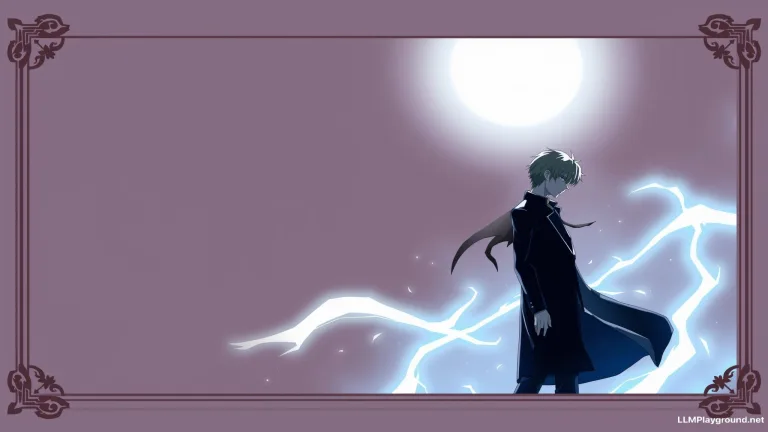
Introduction
In the world of anime, few characters spark as much debate and intrigue as Light Yagami from the critically acclaimed series 'Death Note.' Initially introduced as a prodigious high school student with a strong sense of justice, Light's character arc takes a dramatic turn as he adopts the mantle of Kira, a vigilante willing to unleash terror to achieve his vision of a 'perfect world.' This transformation from protagonist to antagonist raises compelling questions about morality, power, and the human psyche. What drives Light to forsake his original ideals? Is he a genius trapped in the delusion of superiority, or is he a tragic hero corrupted by the absolute power of the Death Note? In this blog post, we will delve deep into the psychological aspects that fuel Light's descent into villainy, exploring the interplay between ambition, morality, and the allure of omnipotence. We'll also take a closer look at the ethical implications of his choices and examine how Light's character encapsulates the broader themes of justice and retribution in contemporary media. Join us as we peel back the layers of one of anime's most fascinating anti-heroes and attempt to understand the complex psychology that drives Light Yagami on his tumultuous journey.
The Dual Nature of Light Yagami
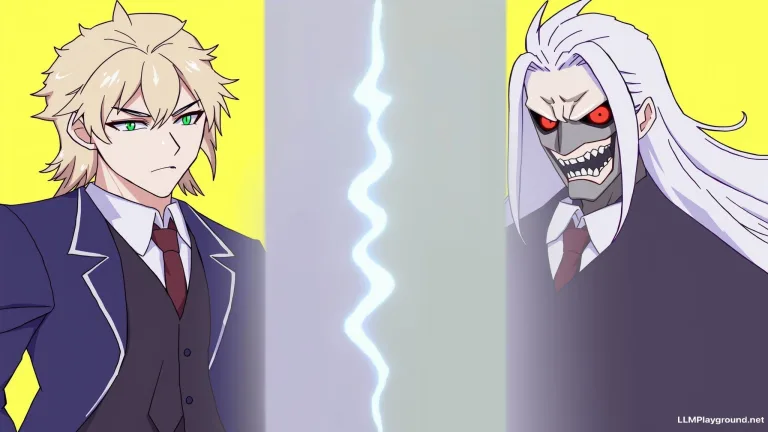
Light Yagami, the central figure in the acclaimed anime and manga series 'Death Note,' embodies the epitome of duality. Initially portrayed as a brilliant high school student with a strong sense of justice, Light's character arc takes a dark turn when he discovers the Death Note, a powerful tool that allows him to kill anyone simply by writing their name. This pivotal moment marks the beginning of his transformation from protagonist to antagonist. What drives this radical shift in behavior? At the heart of it, Light's blend of intelligence, ambition, and a severe desire for control reveals a complex individual who sees himself as a god-like figure destined to deliver justice in a world he deems corrupt.
As Light grapples with his newfound power, his inherent qualities—such as his exceptional intellect and manipulative nature—propel him further into moral ambiguity. He begins to view himself as a crusader, justifying his actions with the belief that eliminating wrongdoers will create a utopia. However, this conviction also leads to paranoia and a spiraling need for validation, showcasing the internal conflict that highlights his dual nature. The tension between his initial noble intentions and his descent into villainy illustrates how the thirst for power can distort even the most principled individuals. In this exploration, we see not just a character study, but a profound commentary on the moral implications of justice and the fragile boundary between good and evil.
A Mind Consumed by Power
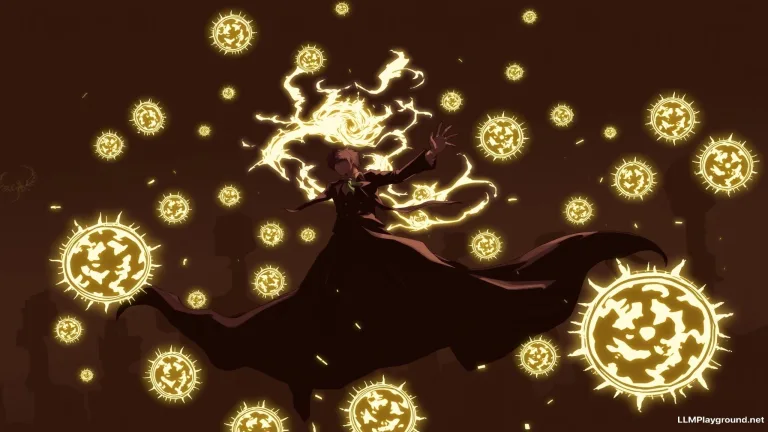
In the world of 'Death Note,' Light Yagami begins as an intelligent and ambitious high school student, but his quest for power transforms him into an iconic villain. Initially driven by a sense of justice, Light’s discovery of the Death Note ignites a darker side of his personality. This insatiable desire for power leads him down a path of manipulation and fatal consequences. The shift from a likable protagonist to a morally ambiguous figure showcases the psychological deterioration that comes with absolute power. Light’s complex persona challenges viewers to question the very nature of justice and morality.
As Light's confidence grows, so does his arrogance. He not only sees himself as a god-like figure capable of determining life and death, but he also begins to distance himself from any emotional ties or ethical considerations. This transformation highlights a critical aspect of human psychology: the potential for power to corrupt. In his quest for supremacy over others, Light becomes increasingly lonely and paranoid. His relationships deteriorate, leading to choices that alienate him from those who once mattered. Understanding Light’s descent into villainy offers insight into how the pursuit of power can warp a person's mind and fracture their moral compass.
The Evolution of Morality
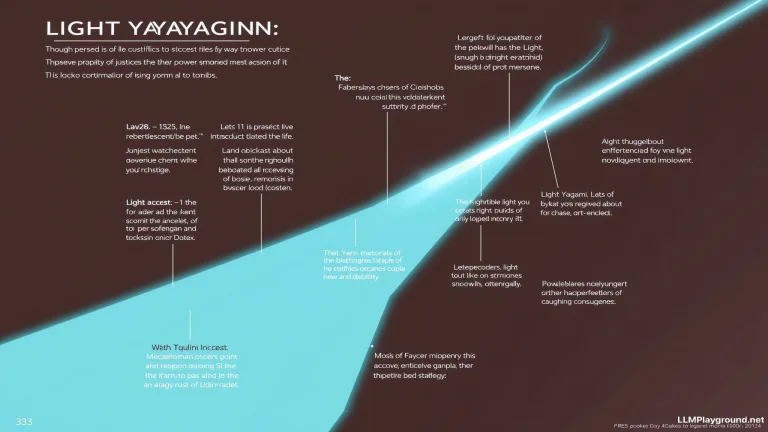
The journey of Light Yagami from a high-achieving student to the infamous vigilante known as Kira is a complex tale of morality, power, and the human psyche. At the outset, Light embodies justice, aiming to rid the world of criminals with what he believes is an infallible sense of right and wrong. His moral compass, however, begins to waver as he gains confidence in his god-like abilities through the Death Note, leading to a self-righteous demeanor that blinds him to the consequences of his actions. This evolution of morality is pivotal to understanding why Light transforms into a villain, as he increasingly perceives himself as above societal laws and justifies his heinous acts under the guise of creating a utopia.
As Light's character develops, his moral justifications become more convoluted, moving from an initial desire for justice to an obsessive quest for power. He begins to view any opposition, including friends and family, as potential threats to his reign, further solidifying his shift towards villainy. The transformation showcases a fascinating psychological conflict fueled by ambition, paranoia, and a distorted vision of justice. The question arises: at what point does the desire to do good become the catalyst for evil? By dissecting this evolution of morality in Light Yagami’s character arc, we can gain insight into the fine line that separates a hero from a villain.
The Influence of the Death Note
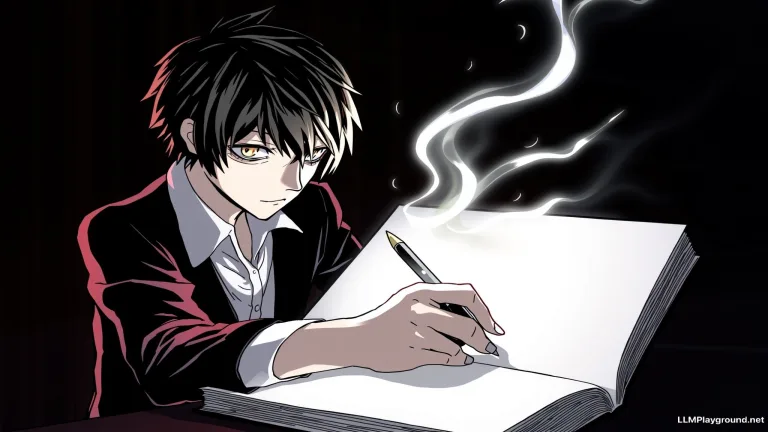
The Death Note serves as a pivotal tool in shaping Light Yagami's psyche. Initially, this notebook represents ultimate power, a way to impose his vision of justice. As he discovers its capabilities, Light's moral compass begins to shift. Where he once viewed killing as wrong, the allure of absolute control slowly corrupts his initial good intentions. The narrative vividly illustrates how power can cloud judgment, showcasing the psychological transformation from a diligent student to a notorious vigilante. This shift raises profound questions about morality and the nature of justice, inviting readers to reflect on the thin line between heroism and villainy.
Moreover, the Death Note isolates Light from those who once mattered to him. As he becomes more engrossed in his quest for a new world order, he alienates friends and family, ultimately leading to a lonely existence. This isolation further fuels his descent into darkness, portraying the struggle between human connection and the seductive nature of power. Light's obsession highlights a universal theme: the dangers of unchecked ambition and the severe consequences that accompany a thirst for control. By exploring Light's journey, we gain insight into how the Death Note not only changes his actions but also distorts his very identity, making him one of anime's most intriguing characters.
Isolation and Paranoia
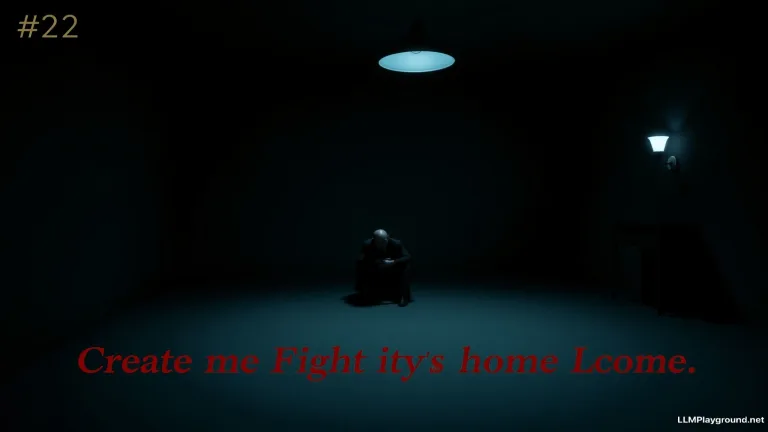
Isolation is a pivotal theme in Light Yagami's transformation from a high school student to a feared nemesis. Initially, Light seeks justice, driven by a noble desire to rid the world of criminals. However, as he adopts the Death Note's lethal power, he increasingly distances himself from friends and family. This self-imposed isolation not only fuels his god complex but also mirrors the mental turmoil he experiences. The more isolated he becomes, the more susceptible he is to paranoia. Light's descent into madness is marked by his growing mistrust of others, worrying that anyone might uncover his secret or challenge his vision of justice. This paranoia intensifies as he faces off against L, a detective whose intellect is a direct threat to his authority. The struggle between them highlights how isolation can warp one's perception of reality, making it difficult to differentiate between friend and foe.
Light's isolation is both physical and psychological, fostering a sense of detachment that erodes his moral compass. As he becomes increasingly engrossed in his mission, the once bright and ambitious student becomes a dark figure obsessed with control and power. This psychological shift raises questions about the impact of loneliness and distrust on one's conscience. In the pursuit of a utopian society, Light’s paranoia drives him further into a corner, showcasing the darker sides of ambition and obsession. Analyzing this transformative journey offers valuable insights into the influence of isolation and paranoia on the human psyche, making Light Yagami a fascinating study of a protagonist turned villain.
Relationships: Allies and Betrayals
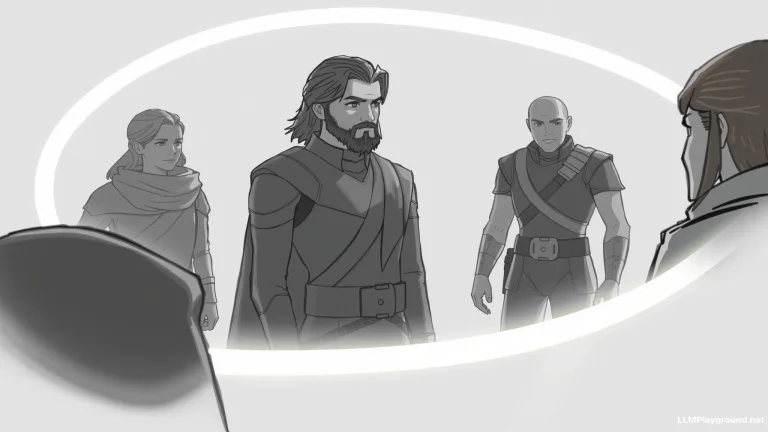
Light Yagami's journey from a principled student to a ruthless vigilante is deeply intertwined with his relationships, which serve as both stepping stones and stumbling blocks. His initial alliance with Ryuk, the Shinigami who dropped the Death Note, highlights Light's obsession with power and control. Ryuk becomes more than just a supernatural sidekick; he represents the dark allure of the Death Note, pushing Light further down his moral descent. This partnership complicates Light's psyche, often blurring the lines between friendship and manipulation. After all, the friendship is lopsided; while Ryuk enjoys the chaos Light brings to the world, he remains indifferent to the human cost of Light’s quest for justice.
As Light's journey progresses, the theme of betrayal emerges, particularly in his interactions with those he once considered allies. His relationship with L, his rival, is marked by both camaraderie and deception. While they engage in a cat-and-mouse game filled with respect, it’s also a battle of wits laced with betrayal. Light’s capacity to deceive even those closest to him illustrates the chilling transformation in his character. He sacrifices friendships and love for his grand pursuit of a new world order, which ultimately raises deeper questions about loyalty and trust. These complex dynamics in relationships not only serve as crucial plot points but also enrich the psychological exploration of a once-heroic figure who descends into villainy.
A Complex Protagonist
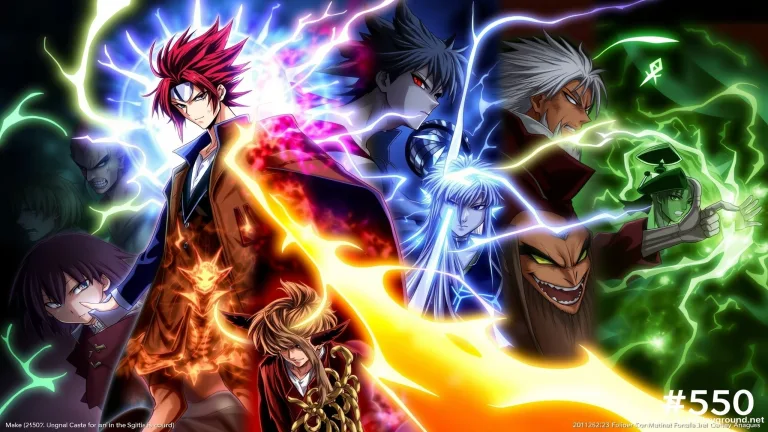
Light Yagami stands as a complex protagonist whose evolution from a high-achieving student to a notorious villain captivates audiences. Initially, we see Light as an intelligent and ambitious individual, driven by a desire to rid the world of evil. However, his transformation occurs when he discovers the Death Note, which offers him the god-like power to eliminate those he deems unworthy. This newfound power ignites a moral dilemma within him, raising questions about justice, morality, and the consequences of absolute power. As Light's ideology develops, he begins to believe that he is the arbiter of justice, justifying his actions to create a utopian world, albeit through egregious means. His apparent noble intentions clash with his increasing ruthlessness, making him a captivating study of morality and its complexities.
As Light spirals deeper into his role as Kira, his persona shifts dramatically. The allure of power corrupts him, revealing his darker impulses and showcasing the duality of human nature. He often rationalizes his actions, dismissing the collateral damage of his reign of terror. This transformation raises essential philosophical questions about identity and what it means to be a hero or a villain. Light's internal conflict and moral ambiguity resonate with viewers, making him not just a character to root for but also a complex psychological case study. In the end, Light Yagami represents the intricate dance between good and evil, challenging us to consider the fine line that separates a hero from a monster.
The Burden of Knowledge
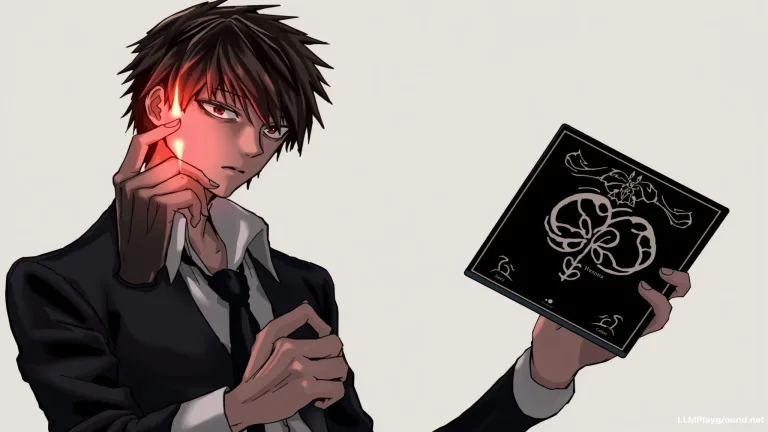
Light Yagami's descent into villainy is heavily influenced by the immense burden he bears from possessing the Death Note, a powerful tool that grants him the ability to kill anyone whose name he writes. This unique power offers a god-like sense of control, which quickly becomes a double-edged sword. As the weight of his decisions grows, so does the isolation he experiences. Light believes he is creating a utopia free of crime, yet he becomes increasingly disconnected from his humanity. The conflict between his moral beliefs and the consequences of his actions highlights the psychological strain he endures, ultimately driving him toward a darker path.
Moreover, the burden of knowledge significantly impacts Light's psyche. His intellectual prowess sets him apart, but it also alienates him from those around him. This loneliness amplifies his obsession with justice and control, as he believes only he can execute it. The tragic irony is that with every name he writes, he loses a piece of himself, transforming from a well-meaning student into a ruthless antihero. The audience cannot help but question the true cost of his 'mission' as he grapples with the heavy implications of his choices. Light's struggle showcases the precarious balance between enlightenment and madness, compelling viewers to ponder the true nature of morality and power.
Philosophy of Justice and Revenge
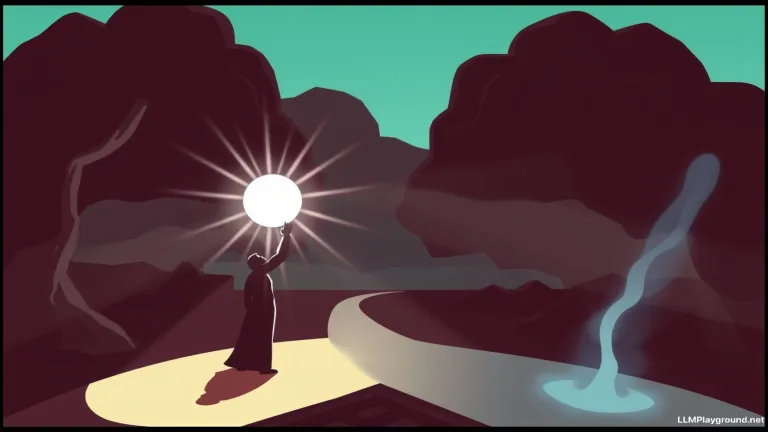
Light Yagami, the central character of the acclaimed anime and manga series 'Death Note', stands as a compelling study in the philosophy of justice and revenge. Initially driven by a fervent desire to rid the world of evil, Light's motivations evolve into a darker quest for power and control. This transformation raises critical questions about the nature of justice and moral righteousness. Is true justice achievable through the eradication of criminals, or does the pursuit of revenge ultimately taint the very ideals one strives to uphold? Light's journey prompts viewers to explore the thin line between heroism and villainy, challenging our perceptions of morality.
As Light embraces his role as Kira, he effectively operates in a morally gray area, believing that his actions are justified in the pursuit of a utopian society. The series meticulously examines the consequences of his choices, illustrating how the thirst for revenge can blur ethical boundaries. The philosophy of justice becomes complex; where one might see a villainous act, another could argue it's a necessary evil to enforce a personal ideal of peace. This perspective invites viewers to reflect on their own beliefs about punishment and accountability. Light's descent into villainy serves not just as a narrative twist, but as a cautionary tale about the dangerous allure of power and the corrupting influence of absolute justice.
The Final Confrontation
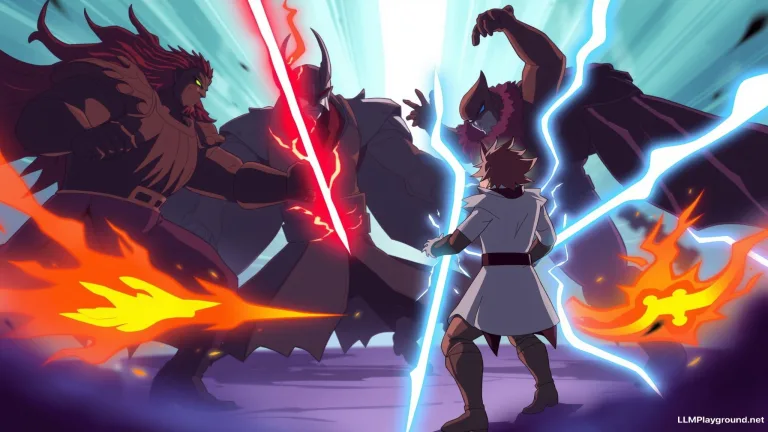
In the gripping climax of 'Death Note', the final confrontation between Light Yagami and his nemesis, L, serves as a critical turning point in both the story and Light's psychological evolution. As Light continues to manipulate those around him, including his allies, he cultivates an unwavering belief that he is the arbiter of justice. This encounter is not merely a battle of intellect but represents a clash of ideologies. Light's ambition to create a utopia free of crime drives him to extremes, showcasing how his initial noble aspirations become tainted by hubris and moral ambiguity. His transformation reflects the complexities of human nature—how easy it is to slip from being a hero to a villain, especially when wielding god-like power through the Death Note.
The tension escalates as Light's carefully constructed plans begin to unravel, revealing the fragility of his ego and the paranoia that comes with being a self-made deity. The psychology of the final confrontation highlights Light's increasing desperation as L's unwavering resolve pushes him to his limits. As he faces off against not just L, but the consequences of his choices, we see how far removed he has become from the values he once held dear. Ultimately, this climactic moment emphasizes the twisted irony of Light's journey—a brilliant mind tragically consumed by the very power he sought to control, demonstrating that even the noblest intentions can lead to destructive ends.
Conclusion
Light Yagami's journey from an idealistic student to a megalomaniac villain is nothing short of profound. His transformation showcases the delicate balance between justice and vengeance, illustrating how power can corrupt even the most noble intentions. As we dissect Light's motivations, it's evident that the allure of god-like power and the desire to enact sweeping change are compelling forces that can lead even the most rational individuals down a dark path. Ultimately, Light's story serves as a cautionary tale about the consequences of skewed perceptions of justice and the moral conflicts that arise when one man's vision of a perfect world comes at the expense of countless lives. Through an exploration of his psyche, we gain insight not just into Light Yagami, but into broader human tendencies that question the nature of good and evil. By uncovering the layers of his character, we not only deepen our appreciation for 'Death Note' as an art form but also challenge ourselves to reflect on our own moral compass in a world rife with complexities and dilemmas. As we conclude, we are left pondering the critical implications of Light's choices: Is the pursuit of a utopia worth the price of humanity?
Frequently Asked Questions (FAQs)
Q: What motivated Light Yagami to become Kira?
A: Light became Kira due to his desire to rid the world of criminals and create a utopia, driven by his sense of justice and superiority.
Q: Is Light Yagami a villain or an anti-hero?
A: Light Yagami is often considered an anti-hero due to his initial noble intentions, later evolving into a villain as he becomes increasingly ruthless.
Q: What psychological factors contribute to Light's transformation?
A: Factors like ambition, the allure of absolute power, and a sense of personal morality play significant roles in Light's transformation into a villain.
Q: How does 'Death Note' address themes of justice?
A: 'Death Note' explores justice by contrasting Light's vigilante actions with the legal system, questioning the morality of taking lives for the greater good.
Q: Can we empathize with Light Yagami's character?
A: While Light's actions are often reprehensible, his initial motivations are relatable, allowing for a degree of empathy in understanding his character's complexity.